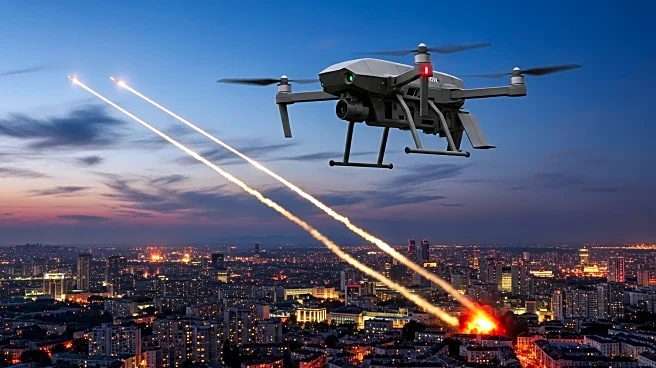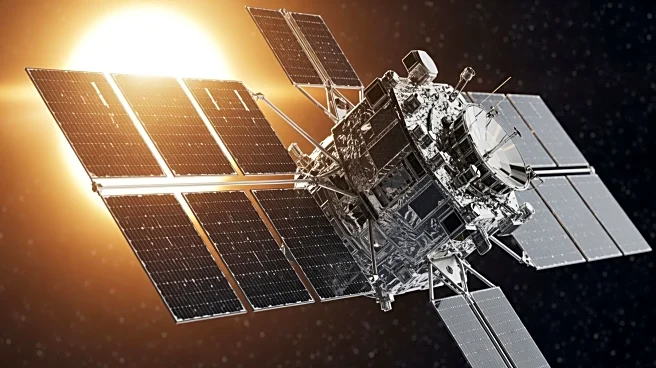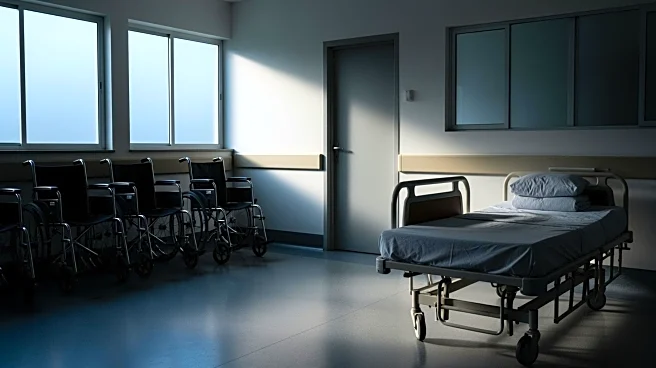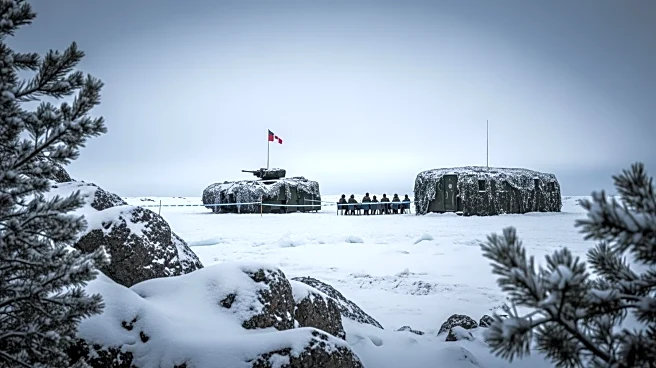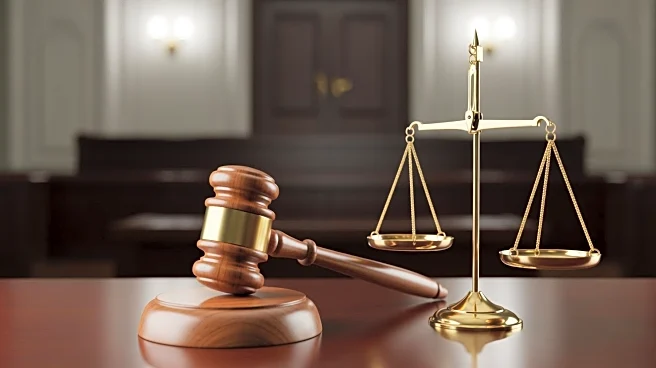What's Happening?
Russia launched a significant wave of missile and drone strikes on Ukraine, marking the first major assault in nearly a month. The attacks targeted various sites across the country, with Kyiv experiencing the most severe impact. According to Ukraine's Air Force, Russia deployed nearly 600 drones and numerous missiles, resulting in the deaths of at least four individuals, including a 12-year-old girl, and injuring at least 70 others. The strikes damaged residential buildings, a medical facility, a kindergarten, and other civilian infrastructure at over 20 locations. Ukrainian President Volodymyr Zelenskyy engaged with several European leaders, including NATO Secretary General Mark Rutte and Finnish President Alexander Stubb, to discuss the attacks and advocate for increased pressure on Russia.
Why It's Important?
The recent strikes underscore the ongoing volatility and humanitarian crisis in Ukraine, highlighting the urgent need for international intervention and support. President Zelenskyy's calls for stronger action against Russia reflect the broader geopolitical implications of the conflict, which risks escalating into a global arms race. The attacks also coincide with parliamentary elections in Moldova, a neighboring country, where the outcome could influence regional dynamics and the balance of power between pro-European and pro-Russian factions. The situation in Ukraine remains a critical focal point for international diplomacy, with potential repercussions for European security and stability.
What's Next?
The international community, particularly European nations and NATO, may face increased pressure to respond decisively to Russia's actions. Zelenskyy's advocacy for security guarantees and enhanced support could lead to further diplomatic engagements and potential military aid. The ongoing conflict may also prompt discussions on strengthening air defenses across Europe, especially in light of recent reports of unidentified aerial objects. The outcome of Moldova's elections could further influence regional alliances and the strategic approach to Russia's aggression.
Beyond the Headlines
The attacks raise ethical and legal questions about the conduct of warfare and the protection of civilian populations. The international community's response to Russia's actions could set precedents for handling similar conflicts in the future. Additionally, the situation highlights the challenges of balancing national sovereignty with international intervention, as countries navigate complex geopolitical landscapes.
